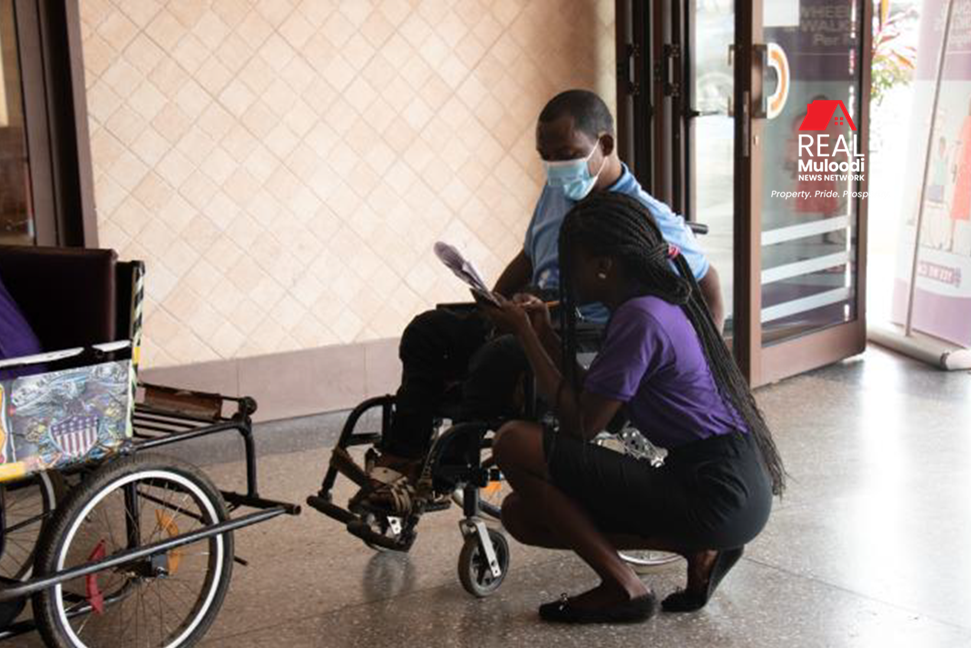UGANDA, Kampala | Real Muloodi News | Kampala’s infrastructure highlights a critical need for accessible hotels and other public buildings to accommodate individuals with disabilities.
Recently, an incident at a Kampala hotel revealed the challenges faced by wheelchair users, underscoring the urgency of creating universally accessible spaces.
On a recent morning, an individual in a wheelchair was denied entry to a hotel in Kampala due to a lack of wheelchair-accessible pathways.
The hotel allegedly sent four staff members to carry the individual up the stairs, an undignified and uncomfortable solution. This scenario is not isolated, as many hotels and public buildings in Kampala lack proper access for disabled persons.
The individual also recounted a similar experience at a hotel in Muyenga, where wheelchair access and essential facilities, like washrooms, were located far apart.
When asked if the hotel manager recognised the difficulties faced by wheelchair users needing to travel significant distances to access basic amenities, the manager’s silence spoke volumes.
This issue extends beyond hotels. Many churches and public buildings in Kampala have steep steps and inadequate ramps, making them inaccessible to wheelchair users.
In Nakasero, one building features a ramp that ends abruptly, leading nowhere practical for those requiring it.
According to the Uganda Bureau of Statistics, over 12.4% of Uganda’s population lives with some form of disability, highlighting the importance of accessible infrastructure.
Accessible hotels and public buildings are not just a matter of convenience but a fundamental human right.
Wheelchair users and others with disabilities deserve the ability to move freely and independently without relying on others’ assistance.
A representative from the National Union of Disabled Persons of Uganda (NUDIPU) stated, “The lack of accessible infrastructure in Kampala is a pressing issue that affects the dignity and independence of individuals with disabilities. It’s essential that hotels, public buildings, and other spaces prioritise inclusivity in their design.”
Uganda’s Building Control Act of 2013 mandates that all public and private buildings adhere to accessibility standards, yet enforcement remains inconsistent.
Many existing structures fail to meet these requirements, resulting in limited access for disabled individuals.
The need for accessible hotels and infrastructure in Kampala is clear. As urban development continues, inclusivity must be prioritised.
Building designs must consider the needs of all individuals, ensuring that everyone, regardless of physical ability, can access and utilise facilities without hindrance.
The time to address these challenges and build a more inclusive Kampala is now.
READ MORE LIKE THIS:



